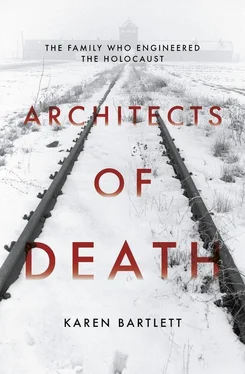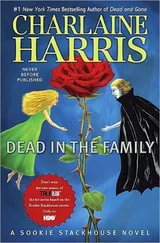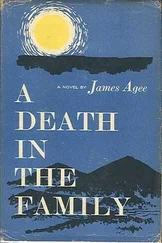I was good friends with Jewish people over the years in Berlin, and I read all the important books, and I wanted to understand when people told me their stories. I wanted to know the whole system and framework, and the framework of the dictatorship too. I felt obliged to warn people who follow ideology, because I had the example of my own ‘good’ father, who also believed in Nazi ideology.
I loved my father, and I felt so sorry that he had served the Nazi movement with all of his good manners and his devotion to social tasks and neighbours. He was a naïve believer perhaps. I wanted to discuss all these questions with him: why did you join this movement? Perhaps you did it to help your brother, to protect his half-Jewish wife? In my father’s case, I think he was partly convinced that this really was a way of national socialism, of building a community for all. He must have believed that. That was his profound error. As a boy, these were the questions I wanted to ask him, but he wasn’t there so I could only dream of how he might have responded.
My aim is not to blame people, or to put them in jail or punish them, but to understand how it happened, why it happened, the road to this disaster. And, of course, within that at least name who was responsible, and make people liable for whatever they did.
So back then my priority was not so much the concentration camps, my first task was to warn people to look at the motives of those ‘bagpipers’ who led you to catastrophe, and into an abyss, because you believed them and supported them. That was my first course of action. Later, of course, I got into the precise and exact story of the Topfs in Erfurt, and this crystallised as the main topic.
Two events in the early 1990s forced Hartmut into taking a more active and public role in discussions about Topf and Sons: the fall of the Eastern bloc and the reunification of Germany meant that many former residents and business owners were seeking to reclaim the homes and businesses they had been forced to abandon during East Germany’s communist era. More than 2.5 million claims were filed, one of which was registered by members of the Topf family, who were seeking ownership and financial restitution for the company of Topf and Sons and the Topf family park in Erfurt.
At the same time, more information about the company’s role in the Holocaust was coming to the attention of the international media due to the publication of a book by Jean-Claude Pressac on the crematoria of Auschwitz, detailing the SS’s relationship with Topf and Sons, and the discovery by historian Gerald Fleming of the Soviet interrogation records for Kurt Prüfer, Fritz Sander, Gustav Braun and Karl Schultze.
Jean-Claude Pressac was a French pharmacist, and a former Holocaust denier who spent years compiling an archive of sources relating to Topf and Sons. Pressac had started investigating the SS construction management files from Auschwitz in the 1970s, when he was collaborating with French revisionist Robert Faurisson who believed the Holocaust was Allied propaganda. Holocaust deniers claimed that technical information from Auschwitz proved that the gas chambers never existed and that far fewer people died there than is claimed. At first, Pressac believed this too, and set out to prove it. His own investigation, however, forced him to change his mind. His 1989 book, Auschwitz: Technique and Operation of the Gas Chambers , was the first to publish documents from the SS construction management office, and was used by those who sought to counter revisionist history. In 1993, Pressac published his second book in France called Les Crématoires d’Auschwitz.
Many historians, including those based at the Buchenwald memorial, and Annegret Schüle, had profound reservations concerning Pressac’s approach, including his demands for payment before allowing other historians access to the archive material (part of which was Topf and Sons’s company material he had been loaned by Udo Braun, who was by then running the renamed company) and his strange obsession with military paraphernalia.
Ronald Hirte, a key member of the team at the Buchenwald Memorial, explains:
Pressac has always been an issue when dealing with Holocaust denial and revisionism. He wanted to become a military officer, but that didn’t happen. In the ’60s and ’70s he started studying the feasibility of the cremations of so many people being killed in the gas chambers. He was at first what we would describe today as a ‘revisionist’. This was a very strong movement in France up to the 1980s. They maintained that the Holocaust could not have taken place, because it was technically impossible to commit such a crime in Auschwitz. Pressac stood out among the revisionists, as he came to the realisation that he had been propagating false information all those years. His conscience did not allow him to continue to deny the crimes that had happened. This would be contrary to his ideology and his political actions. So he had to say ‘No! These crimes happened, the mass murders and the mass cremations took place.’ This made him very unusual and distinguished him from the other historical revisionists. His colleagues dropped him. So he had a very strange life – he was a right-wing, nationalist hardliner who then became a reformed autodidactic historian and author, publishing his two main books in France. [151] Author interview with Ronald Hirte of the education department at Buchenwald Memorial.
Ronald Hirte and Annegret Schüle, who was about to embark on her research into Topf and Sons, travelled to Paris to meet Pressac in 2002, so that they could examine some of his documents at first hand, and also discuss access to the material. Hirte recalls:
It was a very unpleasant meeting and I didn’t think that he was a very nice person. He liked to point out that he knew much more and that we were kind of ignorant in the matter. H e also collected uniforms and arms, he had a huge collection, almost like a museum, and wanted us to put on the uniforms as a kind of a fancy dress and then take pictures of us. I refused. It was a really weird meeting. He was an embittered old man who felt he had not received enough recognition during his lifetime.
After Pressac’s death in 2003, Hirte drove to Paris with Dr Bernhard Post, now the director of the Thuringia State Archive, to retrieve Pressac’s material:
We travelled to Paris overnight. We only had hours to get the files from Jean-Claude Pressac’s house before they disappeared, or any kind of argument started. The files had disappeared before and the way in which they had arrived in Paris had been illegal. So Bernhard Post and I drove off to Paris without stopping on the way, and arrived in time to meet a colleague there. We got all the material that we already knew about out of the flat and took it back to the archive in Weimar.
Regardless of whether or not Jean-Claude Pressac was a troubling and unpleasant character, he undeniably unearthed much material about Topf and Sons and played an important role in bringing it to light. Despite the flaws in his work, Hartmut Topf was armed with this new material when he heard about the Topf family claim for restitution.
Descendants of the Topf family, who were living abroad, had applied to have the company reassigned to them, but their claim was rejected in 1992 after being called an ‘obscenity’ by the World Jewish Congress and condemned by German Chancellor Helmut Kohl. Another claim by the Topf family, to reclaim the Topf family park, was still under consideration, however, and Ernst Wolfgang Topf’s daughter-in-law Dagmar Topf, visited Erfurt, to speak on behalf of her claim. She encountered tremendous hostility. The legal ownership of the park was a matter of dispute, as it had never been formally expropriated by the East German government, however Dagmar Topf’s efforts to reclaim it seemed morally indefensible to most ordinary Erfurt citizens. Hartmut Topf was made aware of her efforts by Jean-Claude Pressac.
Читать дальше












